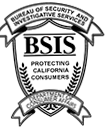Businesses face significant risks from theft and fraud, so adopting effective loss prevention strategies becomes necessary. These strategies target various sources of financial loss, like shoplifting, employee theft, vendor fraud, and administrative errors. Moreover, they extend to addressing potential losses from cyberattacks and data protection issues.
There are several benefits to enlisting the services of a dedicated loss prevention officer for your business. Their role is pivotal in aiding you with managing and safeguarding your investments. By leveraging their expertise, you can proactively confront potential threats and fortify the security of your business assets. Including a loss prevention unit is an investment that can yield substantial returns by minimizing risks and enhancing overall operational security.
An Overview of Who a Loss Prevention Officer is
Loss prevention officers oversee and implement security measures to prevent and address incidents of theft, fraud, and other potential risks. They primarily focus on maintaining a secure environment, safeguarding company assets, and ensuring the safety of both customers and employees. Their key focus areas are:
-
Surveillance and Monitoring
Officers utilize various methods, including video surveillance and undercover observations, to actively observe and track activities within their assigned area. The primary goal is identifying and preventing security threats like theft or fraud.
In this capacity, loss prevention officers maintain a constant and vigilant watch over customers and employees. The focus is promptly detecting suspicious behavior to uphold a secure environment, safeguard company assets, and discourage illicit activities. This role requires sharp attention to detail, proficiency in using surveillance technologies, and the ability to respond swiftly to emerging security concerns.
-
Conducting Investigations
These officers launch and conduct investigations in the event of theft, fraud, or security breaches. This entails collecting evidence, interviewing witnesses, and collaborating with law enforcement if required. These investigations pinpoint the underlying causes of security incidents. Once identified, they will apprehend wrongdoers and institute preventive measures to avert future occurrences.
-
Inventory Control
Inventory control is critical for seamless organizational operations, and loss prevention officers are responsible for ensuring its effectiveness. They actively oversee and manage inventory control measures to guarantee the organization's stock’s accuracy, security, and integrity. These officers will conduct the following as part of their responsibility:
- Regular audits.
- Use of advanced technology.
- Surveillance.
- Employee training.
- Access controls.
- Data-driven analysis and
- Investigations.
Loss prevention officers significantly contribute to minimizing losses and upholding the optimal functioning of the inventory management system. Their role in inventory control is indispensable for safeguarding the organization's assets and promoting operational efficiency.
-
Implementing and Maintaining Security Measures
Loss prevention officers incorporate personalized security measures based on the unique needs of their clients. This involves an assessment of the client's specific situation. This helps identify risks and vulnerabilities. Subsequently, officers design and implement tailored security protocols, including installing surveillance systems and access controls and deploying security personnel. The objective is to create a precise and effective security strategy that aligns with the client's goals. It should effectively mitigate risks and ensure the assets’ safety and protection. Through this personalized approach, loss prevention officers optimize their services. They, thus, provide targeted solutions to address potential threats.
-
Customer Service
Loss prevention officers actively enhance customer service beyond their security responsibilities. Their visible presence deters wrong-doers. It fosters a secure environment and instills confidence in customers. In addition to their core duties, officers engage with customers, provide assistance, and provide information on security procedures. Further, they address concerns to ensure a positive service experience.
Trained to handle conflicts and crises professionally, officers ensure swift resolutions. They maintain order, further improving the atmosphere for customers. Their interactions contribute to a culturally aware and inclusive environment, thus addressing the diverse needs of the customer base.
Loss prevention officers take a proactive stance in preventing theft and security breaches. They add value to the overall shopping or service experience. Through customer education on security awareness, they promote shared responsibility for maintaining a secure environment.
The professionalism and courtesy displayed by loss prevention officers in customer interactions contribute to fostering a positive and respectful atmosphere within the business premises. While security remains their primary focus, their efforts significantly create a more pleasant, secure, and customer-centric environment.
Skills a Loss Prevention Officer Requires
Loss prevention officers must have particular skill sets to perform at their best. This role, which includes responsibilities in security, asset protection, and risk management, demands special attributes for success. These include:
-
Observational Skills
Observational skills are vital for loss prevention officers. They form the foundation of their responsibilities in securing organizations from theft, fraud, and security breaches. These skills are pivotal for detecting suspicious behavior among customers and employees early. Further, the skills allow officers to identify potential threats before they escalate.
Working with surveillance systems is a standard practice. Strong observational skills are crucial for efficiently monitoring activities in real time. This includes scanning multiple screens, recognizing anomalies, and responding promptly to security concerns.
Observational prowess extends to recognizing patterns of theft or fraud. By keenly observing repeated behaviors or activities, officers gain valuable insights that aid in developing strategies to prevent and address specific security incidents.
In incidents, quick response is imperative. Observational skills enable officers to respond promptly, whether apprehending a shoplifter, diffusing a conflict, or addressing a potential security breach. During investigations, detailed and accurate evidence is crucial. Observational skills come into play as officers document specific details, identify individuals involved, and gather information that can support legal actions if necessary.
Beyond deterrence, observational skills are instrumental in anticipating and preventing potential losses. By actively observing the environment, officers can identify vulnerabilities, address security gaps, and proactively deter theft or fraud.
Ensuring adherence to security protocols is another dimension where observational skills are applied. Officers monitor access points, verify credentials, and identify deviations from established procedures.
Continuous observation allows officers to identify weaknesses in existing security measures. This information is critical for adapting and enhancing security protocols to protect the organization's assets.
-
Attention to Detail
Attention to detail is evident in various ways.
Officers conduct meticulous investigations into theft, fraud, or security breaches. This involves collecting accurate information, preserving evidence, and comprehensively understanding the situation. Paying close attention to details ensures the accuracy and effectiveness of these investigations.
In surveillance and monitoring, officers rely on sophisticated systems to observe real-time activities. Their keen observation allows them to spot subtle anomalies or behaviors indicating potential security threats. All these efforts contribute to a secure environment. Recognizing patterns of theft or fraud demands a discerning eye for detail. Officers analyze data and behaviors, identifying trends that inform proactive measures. This enhances their ability to prevent security incidents.
Detailed documentation is a critical component of the job. Officers meticulously record specific details of incidents, descriptions of individuals involved, and other relevant information. This documentation serves as the basis for investigations and legal proceedings.
When reviewing surveillance footage, officers pay close attention to details. These include timestamps, specific actions, and interactions. This meticulous review is crucial for understanding the sequence of events and extracting valuable information from recorded footage.
In preventing losses, attention to detail is essential for identifying vulnerabilities in security measures. Officers carefully assess and address potential weaknesses. This ensures a proactive approach to maintaining a secure environment. Further, in ensuring adherence to security protocols, the officers pay attention to individuals' actions, verify credentials, and identify deviations from established procedures. This attention to detail is critical for maintaining a secure and compliant environment.
During interactions with customers and employees, officers apply their attention to detail to assess behaviors, address concerns, and maintain a positive yet vigilant presence. This nuanced approach contributes to effective communication and engagement.
There is a need for compliance with laws and regulations. Thus, an officer's attention to detail ensures that actions taken during investigations and other security-related activities align with legal requirements.
-
Critical Thinking
Loss prevention officers encounter complex and swiftly evolving situations. Critical thinking equips them to dissect scenarios, identify relevant details, and comprehend nuances effectively. The role demands effective problem-solving. Critical thinking empowers officers to assess issues related to theft, fraud, and security breaches. This will enable them to consider various solutions and choose the most effective action.
In high-pressure situations, swift and informed decision-making is essential. Critical thinking allows officers to analyze information quickly, weigh options, and make rational decisions even in time-sensitive circumstances.
During investigations, critical thinking is indispensable. Officers must evaluate evidence, identify patterns, and draw logical conclusions, which are crucial for building strong cases and determining appropriate actions. Additionally, this skill is invaluable in the continuous assessment of security risks. Critical thinking enables officers to evaluate vulnerabilities, anticipate potential threats, and proactively implement measures to enhance overall security.
The dynamic nature of the security landscape demands adaptability. Critical thinking helps officers quickly assess new situations, understand their implications, and adjust their strategies accordingly. The role also requires an ability to recognize patterns associated with theft or fraud, which is integral. Officers with critical thinking abilities will analyze behaviors, identify anomalies, and develop strategies to prevent security incidents.
Collaboration with other departments, like management and human resources, is routine. Critical thinking facilitates effective communication and collaboration. It ensures a comprehensive address of security concerns across the organization.
-
Crisis Management
The loss prevention role is demanding. It involves interactions with systems and diverse individuals and creates a high-intensity work environment. In crises, a swift and appropriate resolution is paramount, requiring officers to be well-trained in crisis management.
Crisis management skills empower officers to make quick, effective decisions in high-stress situations. This is crucial for mitigating potential threats and minimizing the impact of security incidents. Additionally, officers with crisis management skills excel in:
- Precise and efficient communication in tense situations,
- Coordinating responses,
- Providing instructions and
- Ensuring a cohesive approach to crisis resolution.
Moreover, crisis management training equips officers with the adaptability needed in rapidly changing circumstances. This is crucial in dynamic environments where unexpected events can occur. These skills enable officers to effectively coordinate and communicate with external authorities in instances requiring collaboration with law enforcement or emergency services. It ensures a seamless and well-coordinated response.
Loss prevention officers frequently encounter situations demanding de-escalation. Crisis management training equips them with techniques to defuse tense situations. Ultimately, their efforts reduce the likelihood of violence or further escalation. Swift and effective crisis resolution is paramount for minimizing potential damages and losses. Crisis management skills aid officers in implementing strategies to contain and resolve situations, reducing the impact on individuals and assets.
Post-crisis, the ability to conduct a thorough post-incident evaluation is crucial. Crisis management skills enable officers to:
- Assess the effectiveness of their response,
- Identify areas for improvement, and
- Incorporate lessons learned into future protocols.
Ultimately, all this culminates in instilling confidence in both employees and customers. This fosters trust in the security measures and creates a safer environment.
Compelling Reason Why You Need a Loss Prevention Officer in Your Business
You now better understand who a loss prevention officer is and their particular skill set. The all-important question to be addressed is, "How do I know my business needs a loss prevention officer?”
Determining the need for a loss prevention officer in your business involves assessing various factors. They are related to security, risk management, and potential financial losses. Here are key indicators that suggest you consider hiring a loss prevention officer:
-
Increased Shrinkage or Inventory Discrepancies
The notable rise in shoplifting cases in California could account for a portion of the inventory shrinkage and discrepancies businesses have experienced. However, these losses could also result from challenges across the inventory-to-cash conversion process. These challenges impact the entire value chain, from freight and distribution to the store level.
This complex challenge involves various contributors, including:
- External factors like customer shoplifting,
- Internal factors like employee involvement, whether intentional or unintentional, and
- Third parties in the supply chain.
All these contribute to difficulties in maintaining accurate inventory levels.
This intricate situation makes bringing a loss prevention officer on board crucial. The diverse challenges require a professional to assess, recommend, and implement solutions consistently.
Your loss prevention officer will bring specialized expertise, conduct thorough assessments, identify vulnerabilities, and devise proactive strategies. They will be instrumental in refining security measures, employee training programs, and other preventive actions to tackle the different aspects causing inventory shrinkage and discrepancies. Having a loss prevention officer is pivotal for evaluating and implementing solutions. They will ensure a flexible and adaptive approach to counter the various factors impacting inventory integrity and financial losses.
-
Unexplained Financial Losses
As a business owner, you could encounter challenges related to unexplained financial losses. Investigating these issues is crucial for maintaining financial stability and safeguarding your business's health. Factors including internal errors, fraud, theft, accounting discrepancies, or external influences can contribute to these losses.
When the cause of financial losses is unknown, implementing safeguards can be expensive. However, a cost-effective long-term strategy is to hire a loss prevention officer. Their expertise helps reduce the overall costs associated with unexplained financial losses.
A loss prevention officer is skilled at identifying vulnerabilities, conducting thorough assessments, and implementing targeted risk mitigation strategies. Their proactive approach allows them to prevent and minimize financial losses more efficiently than reactive measures. Despite the initial investment, hiring a loss prevention officer can lead to substantial savings over time. This proactive measure safeguards your business and contributes to its long-term financial well-being.
-
Complexity of Business Operations
The natural progression of a growing business often results in heightened complexities within its operations. With expansion comes a broader scope of activities, a more extensive customer base, intricate supply chains, and additional layers of organizational structure. These complexities arise from factors such as:
- An expanded range of products or services.
- Geographical growth.
- Adherence to regulatory requirements.
- Technological advancements, and
- A growing workforce.
Managing and navigating these intricacies becomes a central challenge for businesses aiming for sustained growth and development.
As business operations grow in complexity, there is a need for tailored security approaches to address the challenges stemming from this expansion. Loss prevention officers are well-equipped to meet this challenge due to their specialized training. Their expertise enables them to adapt security measures to specific needs and intricacies.
Loss prevention officers excel at assessing the evolving risks associated with expanding business operations. They have skills in identifying vulnerabilities, conducting comprehensive risk assessments, and implementing customized security strategies. These professionals play a pivotal role in developing and maintaining security protocols aligned with the unique complexities of a growing business. This effectively addresses issues like theft, fraud, and other security threats.
Find Security Solutions Near Me
Incorporating loss prevention officers into a company's overall security strategy is crucial, and their contributions are indispensable for any business. These officers are pivotal in safeguarding assets, reducing financial losses, and ensuring a secure environment for customers and employees.
Loss prevention officers' presence elevates a business's overall security stance. With their specialized training, they proactively identify and address potential risks like theft, fraud, and other security threats. Through effective collaboration with other security measures, these officers contribute to establishing a comprehensive and robust security framework.
Additionally, you can opt to outsource the loss prevention function. Many companies engage third-party security firms or loss prevention service providers like Green Knight Security to manage their security needs. Outsourcing offers benefits, including cost-effectiveness, scalability of security services, and access to advanced security technologies. Contact our Los Angeles team at 844-457-8326 for more information.







